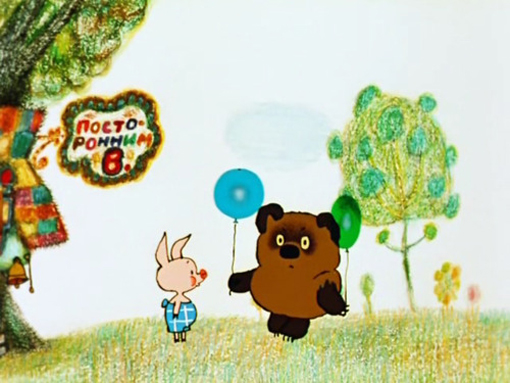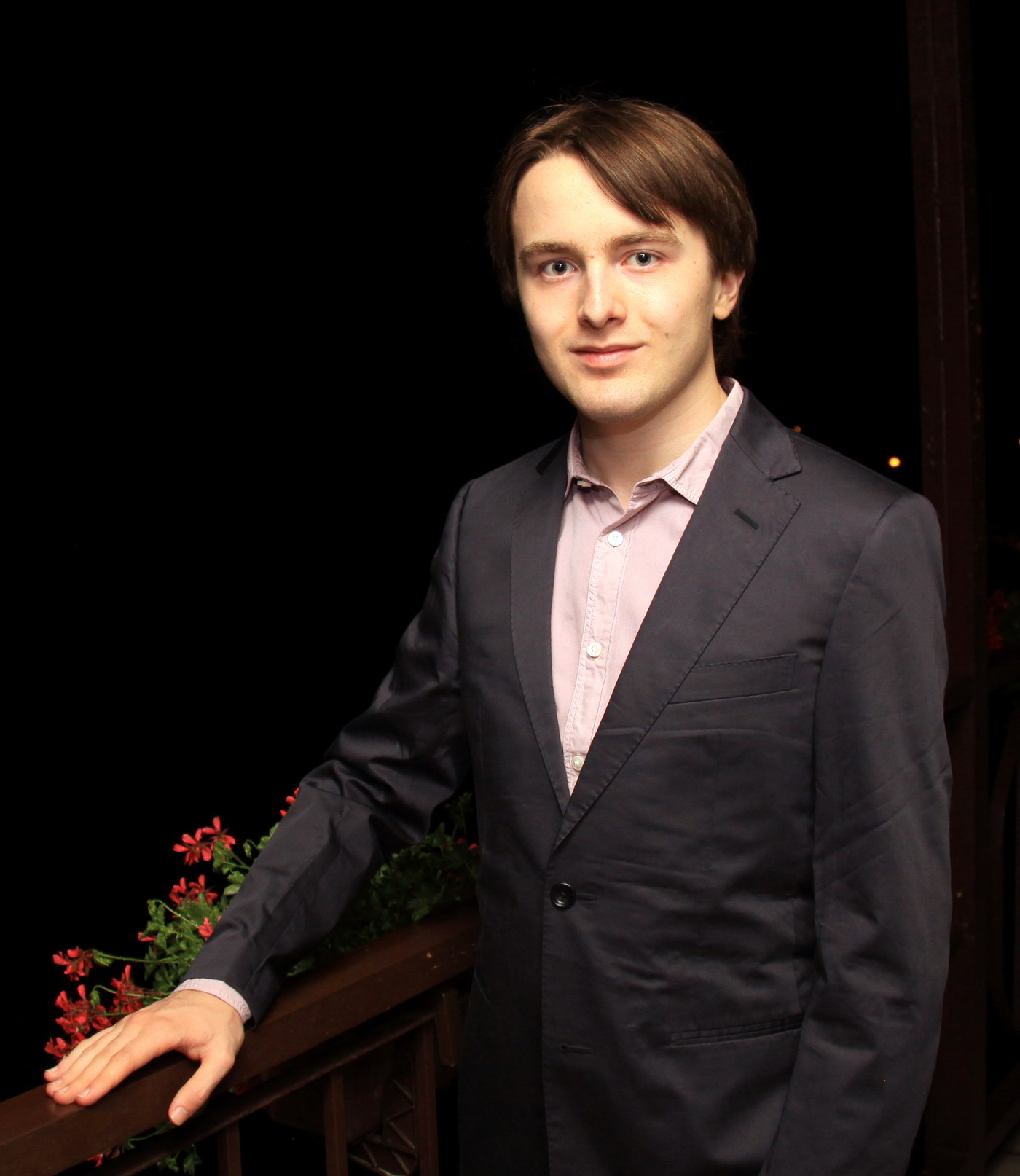Weinberg wrote a considerably large amount of
film music; indeed, he was one of the most prolific film composers in Russia,
and this success allowed him the freedom to avoid the teaching or editing jobs
that hampered the composition efforts of other composers.
Alongside
his more than 40 film scores, Weinberg also wrote for children's animated
films. His greatest success by far was for a series that is a household name in
Russia, but virtually unknown to Western audiences. Most Russians of a
certain-age will be able to at least hum you the some of the music from this film,
but very few would be able to tell you the composer. The films continue to be loved
to this day, and a 2013 DVD re-release sold out within days.
This is Vinni Pukh, a famed Russian
adaptation of A.A. Milne’s loved Winnie-the-Pooh stories, directed by
Fyodor Khitruk, based on the translations by Boris Zakhoder. While Westerners
may be familiar with E.H. Shepard’s charming illustrations for the original
books (and the subsequent soporific Disney adaptations from the 1960s onwards),
the Russian version has taken on a life of its own, with huge success.
Newcomers might be disconcerted by Vinni Pukh,
based on their previous assumptions about the ‘Pooh’ characters. For one thing,
Khitruk’s Vinni is much more bear-like than any other representation, with a
large black band around his eyes, long claws (on paws that don’t actually
attach to his body when he skips along), and a rather small, squat shape. In addition, his facial
expressions vary widely, ranging from child-like awe, philosophical pondering,
through to mild existential angst (of sorts). Some of the other characters also appear,
including Piglet, Rabbit, and Eeyore, but no Tigger, Kanga, or Roo; notably, there is no Christopher Robin,
quite a large departure from Milne’s stories.
Instead, Khitruk opted for a child-like setting
of only the animal characters, setting the same stories as Milne’s books, but
questioning events in a rather ‘deep’ manner throughout. In short, Khitruk’s Vinni
Pukh is radically different to the comparatively bland Disney version.
The series started with three films, starting
with Vinni Pukh (1969), and followed by two sequels, Vinni Pukh pays
a visit (1971), and Vinni Pukh and a busy day (1972). Weinberg
provided music for all three, but it was the in the first that he had the most
success.
Fortunately for non-Russian speakers, the series
has been uploaded onto Youtube with English subtitles (though some of varying
quality in their translation).
The first installment can be seen here:
Khitruk’s animation style was something of a
breakthrough for Soviet cartoons. Before this point, the vast majority of
Soviet children’s animations had been copying the visual style of Disney’s
films, especially that of Snow White and the Seven Dwarfs (1937).
Khitruk’s child-like style of bold shapes and
broken-up forms (such as Vinni Pukh’s paws that don’t actually attach to his
body) proved both heartwarming and instantly recognisable to children.
Weinberg’s music complements this approach. The
opening titles are accompanied by a meandering nursery-rhyme-style tune played
on Harpsichord, still something of a novelty instrument in the Soviet Union at
this point (Weinberg had used the instrument in a soloist role in his Seventh
Symphony, in 1964).
This is followed by opening narration, and
shortly afterwards we are introduced to Vinni Pukh himself, as he sings to
himself strolling through the woods. The manner in which he actually does this
is rather boisterous, described by one reviewer for the Independent as ‘[striding]
around the forest like he is marching on Berlin’. He sings a song with lots of ‘Tramp-pa-pam-pa’
and ‘ruump-pa-puump-pa’ nonsense lyrics, which Weinberg sets to a charming
melody. Vinni was voiced by Yevgeny Leonov, the famed Soviet comedian. Leonov
had a rather deep bass voice, so the recording engineers sped it up by 30%,
giving Vinni Pukh his distinctively surreal voice.
Weinberg’s song is arguably one of the most
famous in Russia, and it appeared in one guise or another in all of the
subsequent Vinni Pukh films. While the song has something of a ‘sprechgesang’
quality about its notation, it is arguably Leonov’s inspired delivery that really
makes the song successful.
The remainder of the film, and its two sequels,
features inspired background music supplied by Weinberg, as well as one or two
other songs, but it is the opening credit music and Vinni’s theme that is the
most easily recognisable and the most instantly loveable (in my experience as a
public speaker, it is Vinni Pukh that I play to Western audiences to
help them warm to Weinberg’s music).
The three Vinni Pukh films went on to win
the USSR State Prize in 1976 (included as part of a group of seven films).
The two other films can be viewed here (with subsequent 'parts' leading off from these videos):
A playful comparison of Khirtuk vs. Disney can be found here: via buzzfeed
Further links/bibliography:
Marissa Fessenden for the Smithsonian
Phil Reeves for the Independent
David MacFayden, Yellow Crocodiles and Blues Oranges: Russian Animated Film since World War II (Ontario: McGill-Queen's University Press, 2005).
Laura Ponteiri, Soviet Animation, and the Thaw of the 1960s: not only for children (New Barnet: John Libbey, 2012).
Marissa Fessenden for the Smithsonian
Phil Reeves for the Independent
David MacFayden, Yellow Crocodiles and Blues Oranges: Russian Animated Film since World War II (Ontario: McGill-Queen's University Press, 2005).
Laura Ponteiri, Soviet Animation, and the Thaw of the 1960s: not only for children (New Barnet: John Libbey, 2012).




